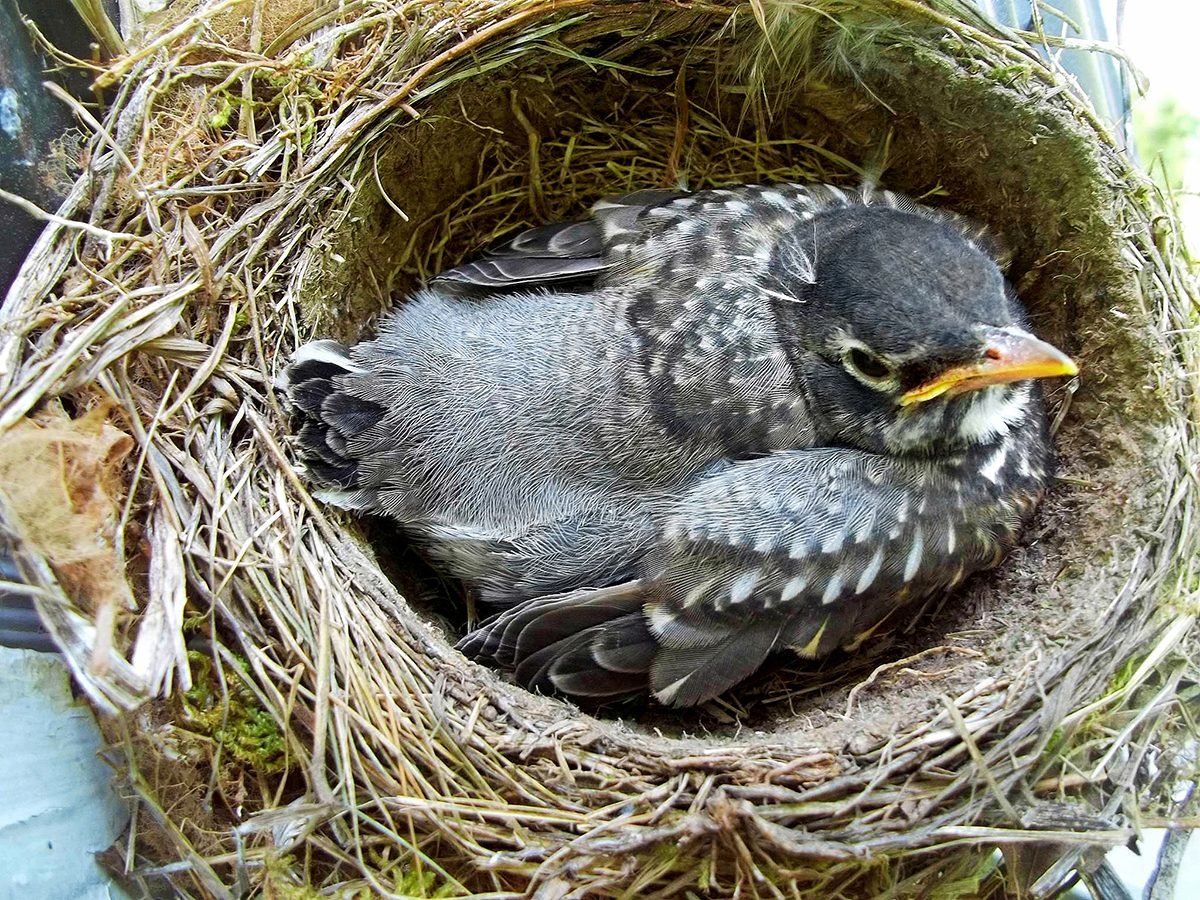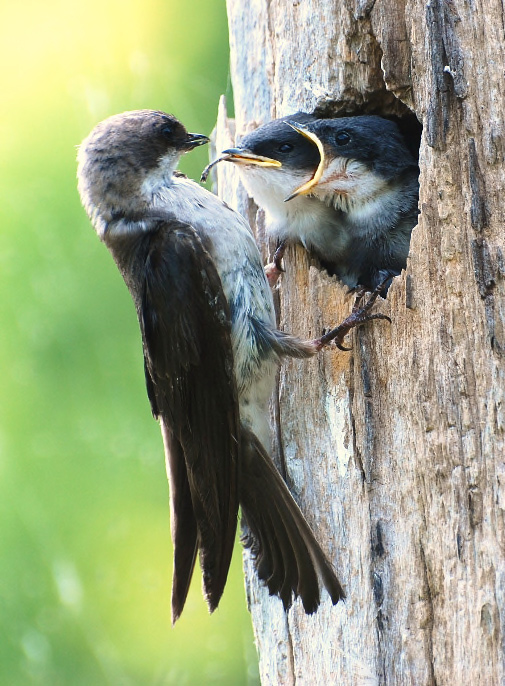
Species such as swallows woodpeckers and other cavity nesters nest where there are no nearby branches for young to awkwardly grab onto when they first leave the nest. Other birds such as raptors may stay in the nest for as long as 8 to 10 weeks.

The female builds a new nest and begins raising the next brood.
How long do birds stay in their nest. Species Variation Western bluebirds for example fledge within 21 days though they stay nearby for another two weeks before becoming fully independent. Eastern bluebirds on the other hand leave the nest after only 15 to 20 days but they sometimes stick around to. Once the baby birds hatch they spend another two weeks in the nest before they are ready to leave although different species often have different incubation and fledgling periods.
Fledgling pigeons remain in the nest until they are almost fully grown. The length of time varies from species to species. This webpage shows average clutch size incubation and nestling period for a number of backyard birds.
Note these are averages and actual numbers vary depending on location and time of year. You can also use our Common Nesting Birds page or All About Birds to determine the average incubation or. Nestlings take 7 to 13 days to stay in the nest under the care of their parent cardinals.
By the 20th day of their nurturing and learning the young ones can go beyond the horizons of their nest and join the other juveniles to flock with. However the juveniles tend to stay no farther from the nest built by their parents. Eastern bluebirds on the other hand leave the nest after only 15 to 20 days but they sometimes stick around to help parents raise another brood that same year.
Do Mother birds stay with their babies at night. In most altricial bird species both the male and female care for their young except hummingbirds. Birds live in their nests all year long.
Some people think birds go to their nests to sleep at night just like we usually sleep in our beds but birds usually only use their nests when they are raising babies in the spring. After 2 or 3 weeks most songbirds are usually ready to leave the nest. Other birds such as raptors may stay in the nest for as long as 8 to 10 weeks.
In contrast precocial birds spend hardly any time in the nest and are often seen wandering in search of food alongside their parents only hours after hatching. Double-check the nest for any remaining eggs or chicks and wait to be sure the healthy birds have all been out of the nest for several days before beginning any removal. Young birds will occasionally return to their nests for several days seeking handouts from their parents but after a few days they will move on and no longer visit the nest.
The nestlings leave the nest when they are 12 to 19 days old. The male keeps feeding the fledglings for about two weeks. The female builds a new nest and begins raising the next brood.
A breeding pair may lay as many as 6 clutches of eggs in one summer. Read everything about it here. But in the late spring keep your eyes and ears open because theres plenty of activity transpiring right in your backyard.
When its time for birds to leave the nest they can be anywhere from 12 to 21 days old depending on the species. It can be fascinating to watch the birds sitting on the nest the eggs hatch and then the young grow up and fledge. Baby birds grow at a very rapid rate so they will only stay in the nest and around your home for a short period of time.
The babies then tend to fly away to find their own mates. Control nests fledged at normal age 11 to 12 days whereas enclosed nests prevented young from leaving for 3 days after fledging naturally to create a. During this pre-incubation period birds may leave the nest for long periods during the day.
After incubation has begun parents can still leave the nest but only for a maximum of approximately 30 minutes. Why should we never touch a birds nest. Other young birds may stay in their nests until they are capable of flight.
Species such as swallows woodpeckers and other cavity nesters nest where there are no nearby branches for young to awkwardly grab onto when they first leave the nest. Unless startled by a predator young of these species tend to remain in the nest until they are strong fliers. After 2 or 3 weeks most songbirds are usually ready to leave the nest.
Other birds such as raptors may stay in the nest for as long as 8 to 10 weeks. In contrast precocial birds spend hardly any time in the nest and are often seen wandering in search of food alongside their parents only hours after hatching. Read rest of the answer.
The female Bluebird will sit on her eggs until the eggs hatch in 13 to 14 days. If some of the eggs do not hatch within 72 hours or three days after all other chicks have hatched it means something went wrong with those eggs and failed to hatch. In respect to this how long do Killdeer babies stay in the nest.
So even though the first-laid egg spends a longer time in the shell than the last-laid all the killdeer chicks have the same development period. It takes 24 to 28 days of incubating for the chicks to hatch. Does male killdeer sit on nest.